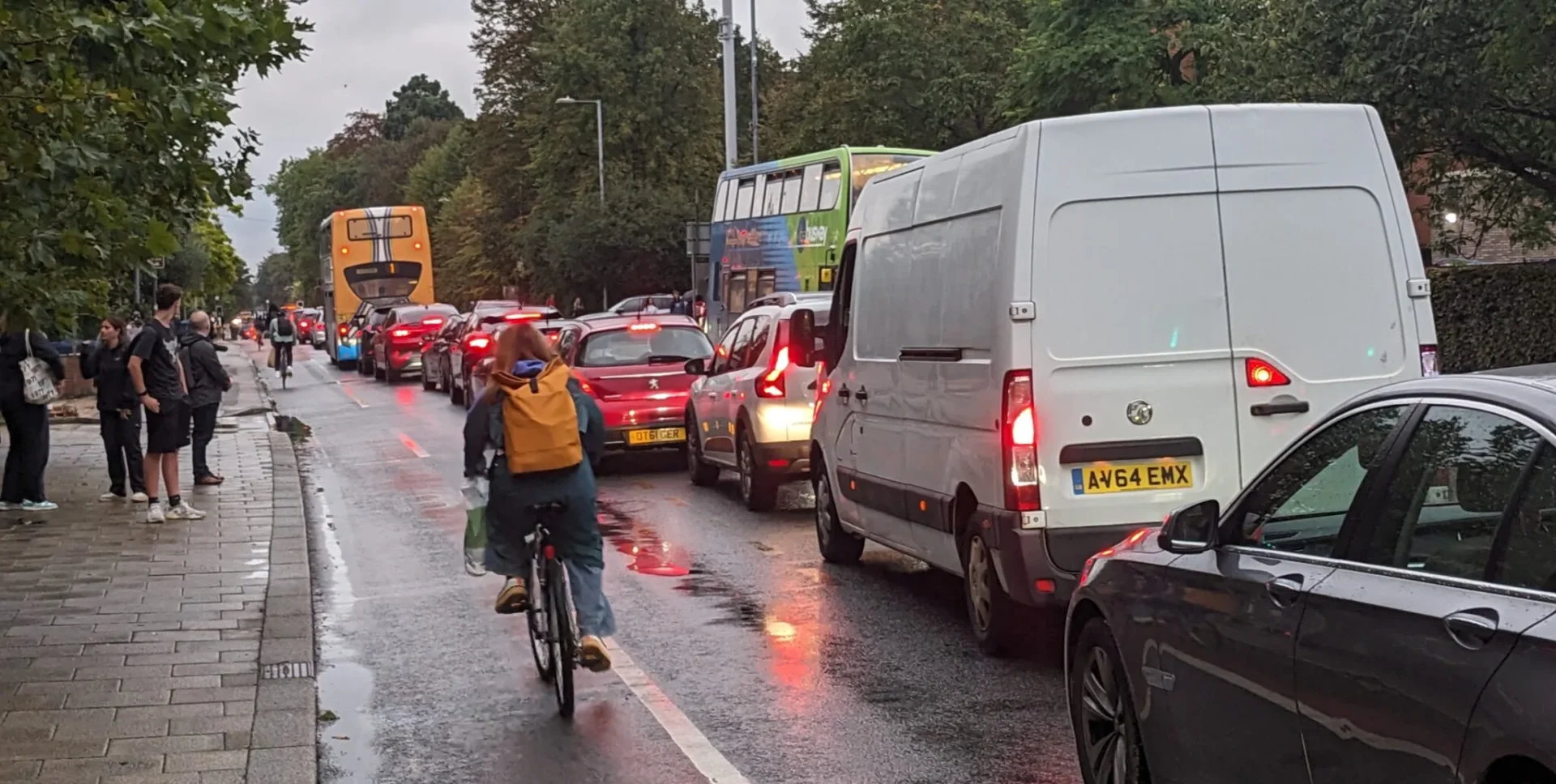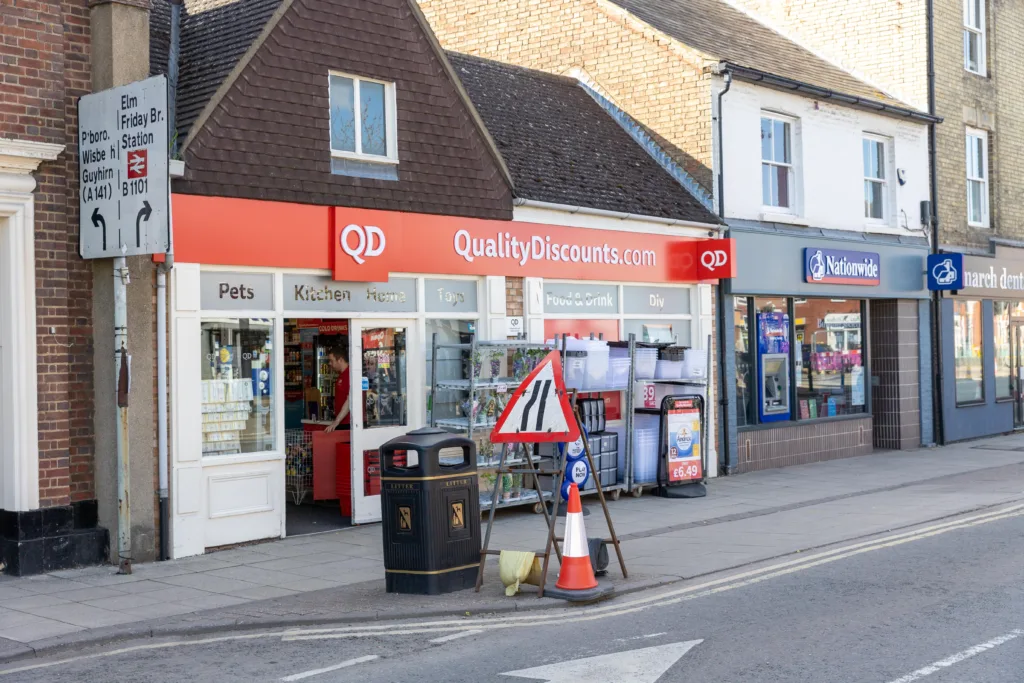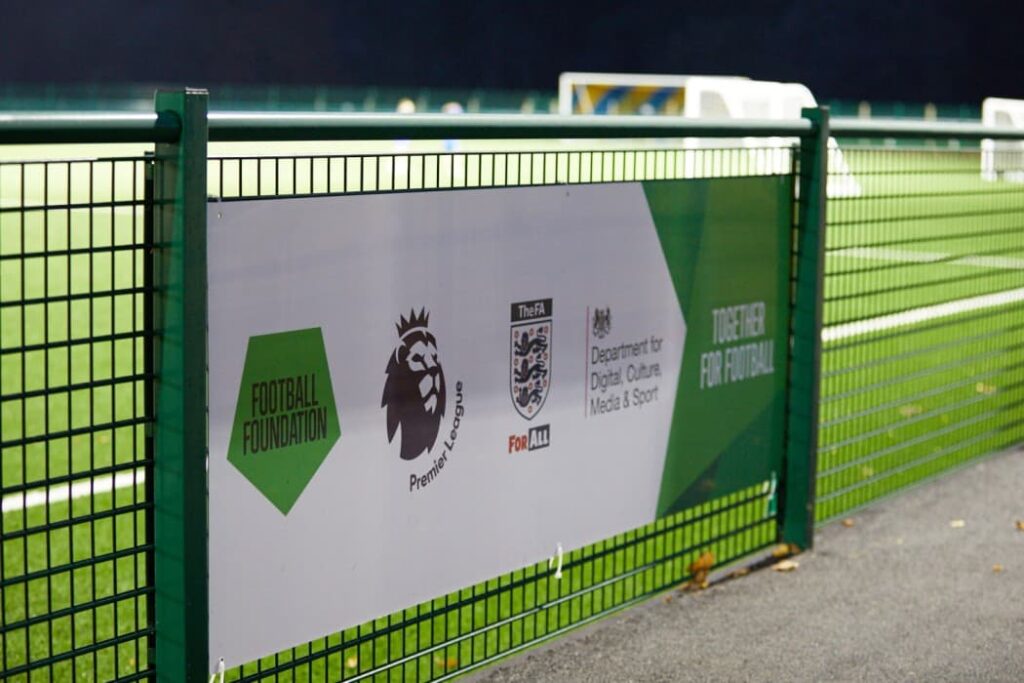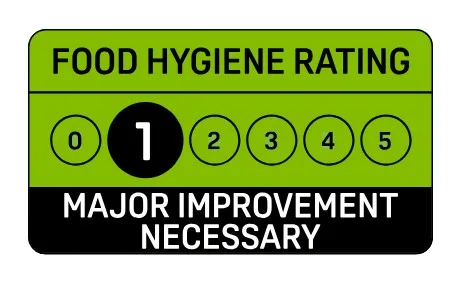The Greater Cambridge Partnership (GCP) intends to substantially reduce the money it spends on projects to cut congestion in Cambridge and is vastly scaling down its ambition in this area. It plans to cease work under its City Access programme on large-scale, transformative, city-wide projects such as road charging and reclassifying the road network, and proposes to pursue localised, minor interventions and speculative pilot schemes in their place.
While these schemes may produce some limited, though welcome, benefits we believe that this restricted focus is misguided.
The substantial downscaling puts in jeopardy the GCP’s ability to tackle Cambridge’s widespread motor traffic congestion, which causes daily misery and frustration.
Congestion across the city makes walking, wheeling, and cycling more hazardous, renders bus services increasingly unreliable and pollutes the air we breathe. It also delays commuters, discourages shopping and leisure visitors, and disrupts business activity.
If the GCP is unable to meet its objective of reducing motor traffic congestion in Cambridge by 15% on 2011 levels, it will have let everyone down – people who drive cars or vans, take buses or taxis, and walk, wheel and cycle alike.
The GCP’s programme of work is determined by the elected politicians who lead our local councils.
If they abandon the ambition of large-scale, city-wide action to reduce motor traffic congestion, they will ultimately be responsible for the GCP failing in its core goal of fixing the region’s inadequate transport network, which currently hinders economic growth.
The current high motor traffic levels are hinted at as the reason for abandoning the road reclassification project.
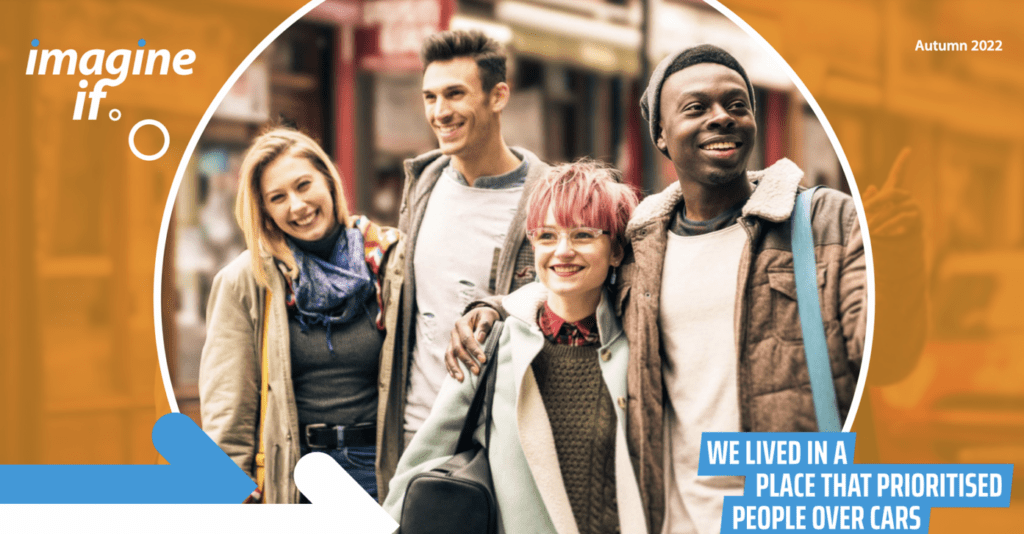
The Eastern Access project, Hills Road and Madingley Road schemes are also being watered down due to the need to accommodate large numbers of cars.
It is highly inequitable that projects to encourage people to use sustainable transport and reduce car usage cannot go ahead or are compromised because there are currently too many people driving.
Many people who drive would like to travel by sustainable means but cannot. When GCP officers assessed the threats and opportunities of not proceeding with the Sustainable Travel Zone road charge last September, they did not mention that abandoning road charging would leave them unable to deliver other GCP projects. In hindsight, this is a significant omission.
Changing the way Cambridge’s roads are classified could have transformed the city for the better.
It could have allowed buses to run on time (over half of bus users we interviewed in Cambridge last summer thought non-Park&Ride services were late or unreliable), made walking, wheeling, and cycling much easier, safer, and more pleasant, given us cleaner air to breathe and made the city a much more attractive place to live, work, do business, visit, or spend time.
In the consultation on road reclassification, 62% of respondents were in favour of the key principle of using modal filters to ensure motor vehicles use main roads as much as possible.
Unless local political leaders summon the courage to work together to deliver a road reclassification project, bring about another transformative option, such as a workplace parking levy, or, at the very least develop a full package of incremental improvements that act powerfully in combination, by 2030 – the year in which the City Deal concludes and Cambridge City aims to reach net zero – Cambridge will still largely be encumbered with a 1980s road system designed to prioritise the private car over sustainable travel.
Silviya Barrett from national transport charity Campaign for Better Transport (a member organisation of the Cambridgeshire Sustainable Travel Alliance) said: “The only way to tackle congestion is to reduce the number of cars on the roads.
“Traffic reduction measures, coupled with public transport improvements have been proven to cut congestion, reduce air pollution and make places more pleasant to work and live.” Richard Wood from Cambridge Area Bus Users said:
“Cambridge Area Bus Users has received multiple complaints about unreliable bus services; one member reported walking from the city centre to the Catholic Church faster than five buses crawling along in road congestion.
“The group cannot envisage significant improvements in bus reliability until congestion is tackled by reallocating road space away from private cars to buses and active travel. Likewise, David Boden, Director of Business Development at Stagecoach East, Chair of the recently formed Cambridgeshire and Peterborough Bus Alliance, is calling for local authorities’ support in delivering a road network on which bus operators can deliver punctual services.”
Many other UK cities are planning or have taken bold steps to transform transport.
Edinburgh will further restrict private vehicles through its city centre to reduce journey times by public transport.
Oxford is going ahead with traffic filters and Low Traffic Neighbourhoods (LTNs).
Bristol has a Clean Air Zone
Central London has an effective congestion charge and recently extended the Ultra-Low Emissions Zone to all Greater London boroughs.
Nottingham’s Workplace Parking Levy helps support its admirable integrated public transport system.
Why does progress in this area continue to elude Cambridgeshire’s politicians?
ABOUT THE AUTHORS:
Cambridgeshire Sustainable Travel Alliance is a coalition of 31 transport, health and environmental organisations which aims to unite and inspire people in
Cambridgeshire working for a transport network that protects our future and offers genuine choice.
It was founded in October 2022 by three organisations – Cambridge Living Streets, Camcycle and Cambridge Area Bus Users – which campaign for better walking, cycling and public transport, respectively.
Find out more at https://cambstravelalliance.org/
See a full list of alliance members at https://cambstravelalliance.org/members


